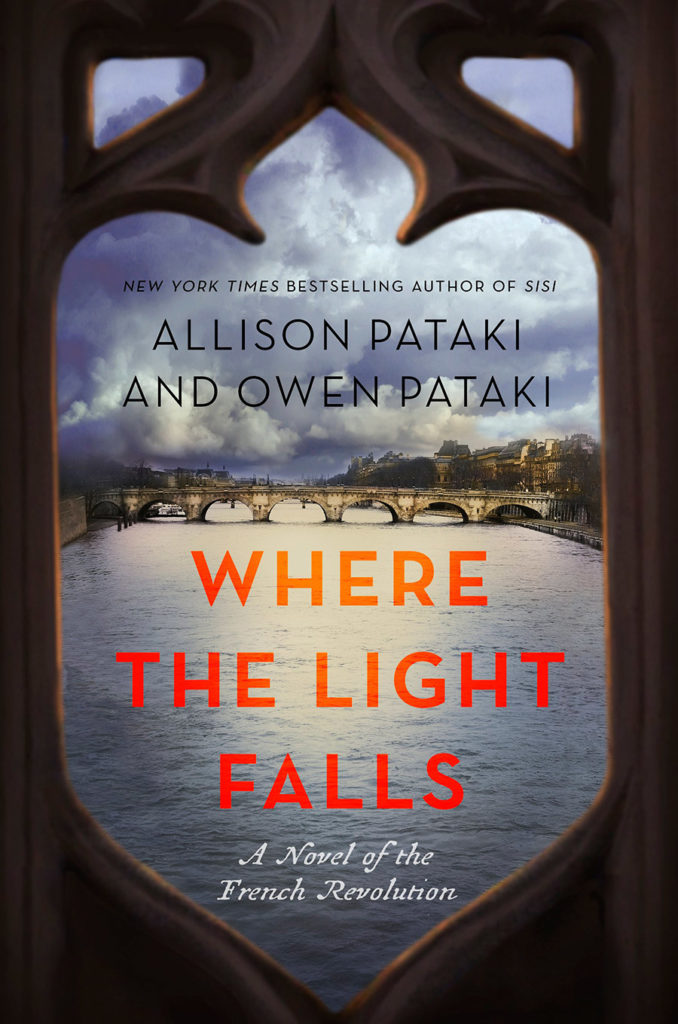For Readers & Book Clubs

Where the Light Falls
TOPICS AND QUESTIONS FOR DISCUSSION
Introduction: Three years after the storming of the Bastille, the streets of Paris are roiling with the spirit of revolution. The citizens of France are enlivened by the ideals of liberty, equality, and fraternity. The monarchy of King Louis XVI and Marie Antoinette has been dismantled—with the help of the guillotine—and a new nation is rising in its place. But as chaos threatens to undo the progress of the Revolution and the demand for justice breeds instability and paranoia, the lives of four compatriots become inextricably linked. Jean-Luc, André, Sophie and Marie find themselves in a world where survival seems increasingly less likely—for themselves and, indeed, for the nation.
- This novel begins with a scene at the guillotine, one of the bloodiest and most iconic symbols of the French Revolution, specifically its Reign of Terror. Why do you think the authors chose to begin the story in this way? What role does the guillotine play throughout this novel? How does this opening scene compare to the Epilogue, which plays out before the Cathedral of Notre Dame and the coronation of Emperor Napoleon?
- The characters in WHERE THE LIGHT FALLS frequently mention the ideals of The Enlightenment and its impact on the French Revolution. Do you believe this was a movement born out of the Enlightenment? Why or why not?
- This book has many examples of mentors or father figures guiding a younger figure, some more positive than others. Discuss some of these “mentor figures.” Whom did you find to be the most inspiring? Whom did you find to be the most malicious?
- Compare the French Revolution with the American Revolution of just a few years earlier. Why do you believe they were so different? Were they similar in any way?
- Compare and contrast the two discussions Andre has on the eve of the battle of Valmy. One is with General Murat, the other with General Kellermann. What do you think were the two messages each older man was trying to send, and which do you think had a stronger affect on Andre?
- In this story, Jean-luc St. Clair struggles to balance his obligations to his family as a father and a husband with his duties as a lawyer, citizen and republican fighting for his beliefs. Do you think he managed to strike an appropriate balance between the two, or does he fall short in his obligations to one or the other?
- Sophie de Vincennes tells Andre of her forced marriage to a Count at a very young age; discuss what obstacles and opportunities women of this time period faced, and try to find three women from this period and list some of the obstacles they faced, and how they overcame them (or did not).
- Guillaume Lazare is a fictional character based on several true to life French Revolutionaries. Who were the real individuals that he is based on, and what similarities or differences do you find between the character and the real-life figures?
- Compare Napoleon’s expedition to Egypt with more recent interventions in the Middle East and North Africa. Are there any similarities between the conquest explored in this book and contemporary conflicts? How are they different?
- Were you surprised by the revelation of the identity of ‘Citizen Persephone?’ Why or why not?
- The Widow Poitier plays a small but significant recurring role throughout this novel. Discuss this powerless peasant woman and the significance of her appearances in Jean-Luc’s life.
- Consider the character of General Thomas Alexandre Dumas, based on the historical figure of that same name and the father of the celebrated French writer, Alexandre Dumas. What did you learn from his life story? Were you surprised by the role he played in Andre’s fate?
